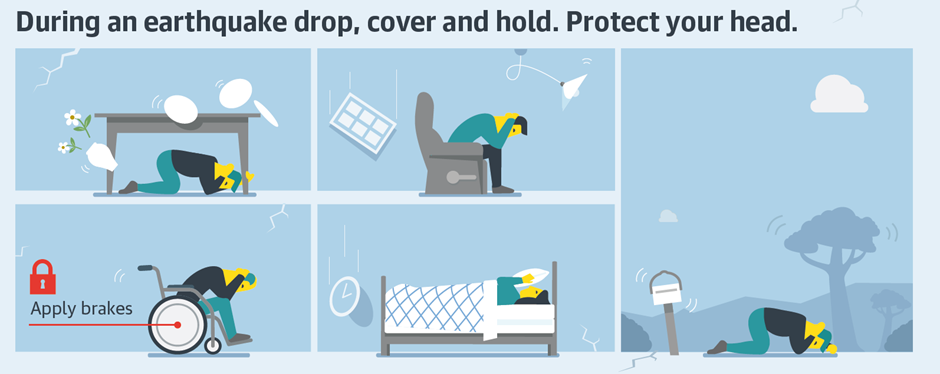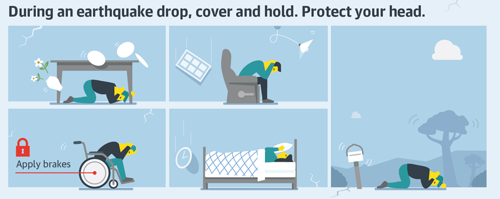
Do you know what to do in the event of an earthquake? Find out what you need to know, how to prepare, what to do when it happens and also what to do following the initial event. Getting ready before an earthquake strikes will help reduce the damage to your home and business and help you survive. Most earthquake-related injuries and deaths result from falling debris or objects in the home, flying glass and collapsing structures such as buildings and bridges.
An earthquake is a sudden onset emergency for which you will not have any prior warning. However, there is a lot you can do to prepare for an earthquake and ensure you are able to cope with the impact on yourself, your family and those you care for.
Remember that an earthquake may be a natural warning sign for a Tsunami.
Most earthquake-related injuries and deaths result from falling debris, flying glass and collapsing structures such as buildings and bridges. Earthquakes can also trigger landslides, avalanches, flash floods, fires and tsunami. This is why it's important to prepare.
Most earthquake-related injuries and deaths result from falling debris, flying glass and collapsing structures such as buildings and bridges. Earthquakes can also trigger landslides, avalanches, flash floods, fires and tsunami.
Getting ready before an earthquake strikes will help reduce the damage to your home and business and help you survive.
 Many people are under-insured or not insured at all.
Many people are under-insured or not insured at all.
Think about quake-proofing your home to prevent damage and injury.
If you are in a wheelchair or have a disability, find out how to stay safe during an earthquake.

It is imperative that all New Zealanders understand the right action to take during an earthquake - Drop, Cover and Hold.
It stops you being knocked over, makes you a smaller target for falling and flying objects, and protects your head, neck and vital organs.
If you have felt an earthquake you might like to report it to GeoNet or monitor how many other people have felt the shaking.